Jim Zanotti, “Major Issues and U.S.-Israel Relations,” Congressional Research ServiceCIE+
This is an excellent historical review of the relationship, including discussion of the Israel-Hamas War (31p.).
The State of Israel’s oldest official relationship is with the United States, the first country to recognize Israel after it declared independence in May 1948. But the connections between American officials and leaders and the Zionist movement go back to the 19th century. After the June 1967 war, the United States became Israel’s most important ally. The United States has provided aid, arms, peace mediation and diplomatic support.
Washington saw Israel as a vital asset in its struggle against the Soviet Union during the Cold War, which lasted until the end of the 1980s. Had Arab states not so readily embraced Moscow as a friend, weapons supplier and geographic asset for ports on the Mediterranean Sea, the American embrace of Israel might have been different.
Israel provided the U.S. with vital intelligence sharing, weapons development and advancement, and, particularly after the fall of the Shah in Iran in 1979, an important strategic link for the United States to ensure the means to sustain moderate Arab states, including Egypt, Jordan, the United Arab Emirates, Bahrain and Saudi Arabia.
Entangling the state-to-state associations of the two countries are the rooted connections whereby the two largest Jewish communities in the world influence each other. Keen backing for a strong U.S.-Israel relationship emerged broadly through bipartisan support from the American electorate. The U.S. and Israel have diverged, however, on how to manage the territories Israel acquired in June 1967. How Israel would or could exchange land for peace or security became the underlying concept in the Arab-Israeli negotiations the United States evolved as the most important mediator, engineer, financier and guarantor of agreements signed and sought. But Jerusalem and Washington have no written treaty. Instead, dozens of letters of assurance, memorandums of agreement and understanding, and close partnerships define the relationship in military and civilian fields.
In June 2025, after Israel cleared the airspace over Iran, the U.S. military bombed three Iranian nuclear facilities, participating with Israel for the first time in a war against a regional enemy. By then, the U.S.-Israel relationship was deeper than it had ever been, as both stood against the spread of nuclear weapons and the spread of toxic ideologies meant to undermine the region’s political stability.

This is an excellent historical review of the relationship, including discussion of the Israel-Hamas War (31p.).
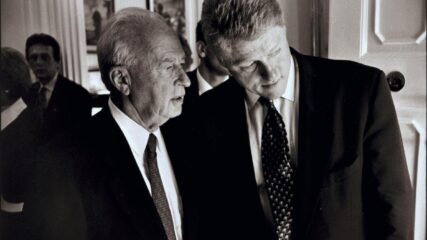
The US-Israeli relationship is complicated, dynamic, multidimensional, and enduring. From initial American governmental opposition to the present, Washington has become Israel’s most trusted ally. Rooted in common bonds, entrenched military sharing, and valued strategic interests, the association has also greatly influenced the shaping and sustenance of American Jewish identity.
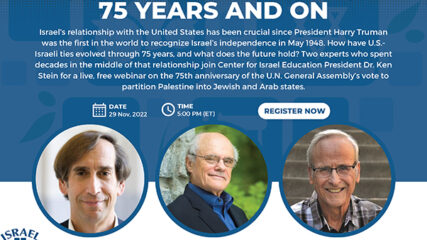
Join CIE’s founding president, Ken Stein, in a conversation at 5 p.m. ET on Nov. 29 with two experts in the field of U.S.-Israel relations, Aaron David Miller and Raphael Danziger, as part of CIE’s Israel@75: A Yearlong Exploration program.
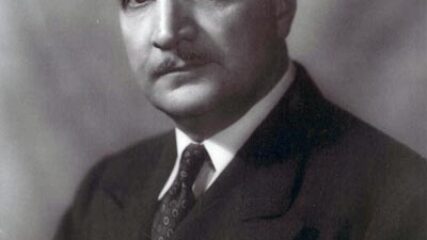
Loy Henderson, Director of the Office of Near Eastern and African Affairs, U.S. State Department, to U.S. Secretary of State George Marshall
Writing two months before the U.S. voted at the United Nations in favor of Palestine’s partition into Arab and Jewish states, Henderson voices profound dislike for Zionism and a Jewish state. He advocates for cultivating positive relations with Muslim and Arab states. He is one of many at the State Department at the time who saw Zionism as contrary to American national interests.
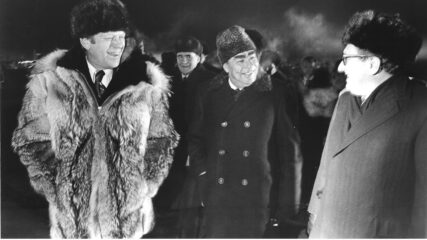
The clash of great powers to control the Middle East, particularly between the U.S. and the U.S.S.R., neither began after World War II nor ended with the demise of the Soviet Union in 1991. Today, China, the U.S., Russia and Middle Eastern regional powers vie to influence everyday politics and resources.
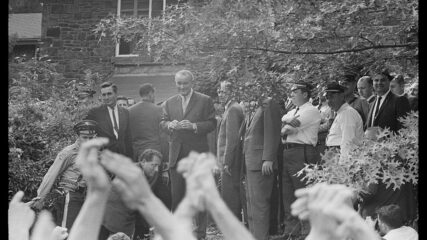
President Johnson’s remarks became the philosophical outline for UN Resolution 242 passed in November 1967. Core to his view was that Israel would not need to return to the pre-1967 war borders, and that the territorial integrity and sovereignty of all states in the region should be protected.
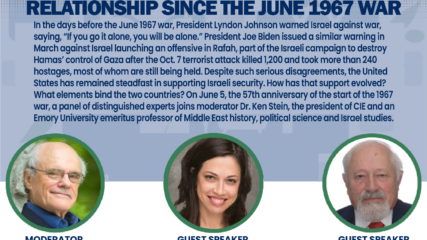
In the days before the June 1967 war, President Lyndon Johnson warned Israel against war, saying, “If you go it alone, you will be alone.” President Joe Biden issued a similar warning in March against…
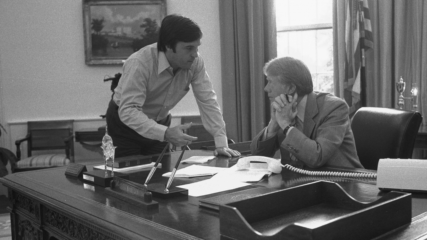
Hamilton Jordan, Carter’s chief political adviser, warned the president to halt the administration’s anti-Israeli actions. Nonetheless, they continued to diminish Carter’s support among American Jews through the 1980 re-election campaign.
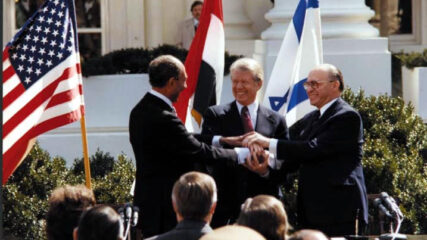
March 26, 2025 By Ken Stein The ripe conditions that prefaced the 1979 Egyptian-Israeli treaty and might presage additional Arab-Israeli agreements are almost totally absent in 2025. Why? Today, there is an absence of political…
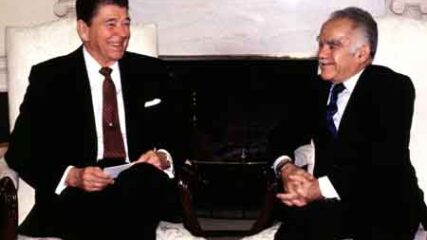
Areas of bilateral political and military cooperation are noted to fend off Soviet involvement in the Middle East, to assist Israel in building the Lavi aircraft, to support an independent Lebanon and to promote Arab-Israeli negotiations.
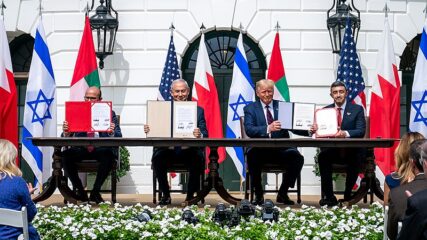
Quietly pursued in the past, long-standing strategic ties between Israel and Gulf states have become public. Building on the historic Joint Agreement signed between Israel and the UAE in August 2020, the Abraham Accords serve as a framework for normalizing diplomatic relations between Israel, the UAE and Bahrain.
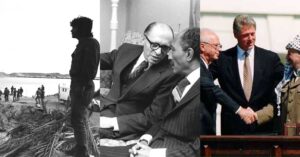
Unfold six Arab states’ embrace of Israel since 1973 out of national interests and U.S. mediation, sidelining the Palestinian movement, and explore Hamas’ Oct. 7, 2023, attack and its implications for the Israeli-Palestinian conflict and Israeli diplomacy.

The first Jew on the U.S. Supreme Court, Brandeis influenced many American Jews in the early 20th century to become Zionists. He persuaded President Woodrow Wilson, a close friend, to support the 1917 Balfour Declaration…
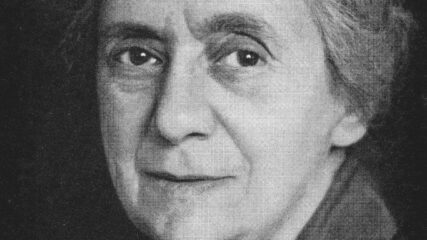
Baltimore native Szold co-founded Hadassah, was its first president from 1912 to 1926, and led its establishment of health care infrastructure in Palestine. In 1896, before Theodor Herzl published “The Jewish State,” she described her…

Gottheil attended the Second Zionist Congress, where Theodor Herzl invited her to translate his speech into French, Italian and English. In the United States she organized women’s study groups that were the precursors of Hadassah….
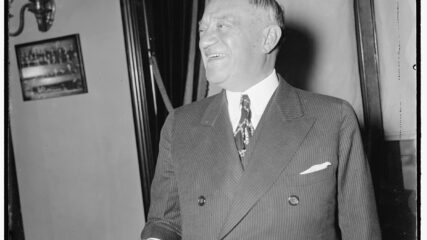
As a U.S. senator from New York from 1927 to 1949, Wagner was a prominent Christian Zionist. He introduced unsuccessful legislation in 1939 to admit 20,000 Jewish refugee children from Germany. He co-wrote a congressional…
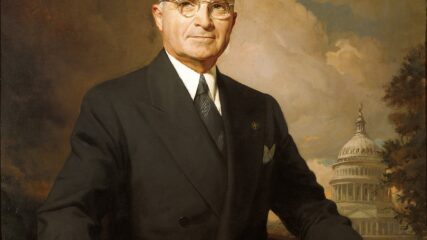
The 33rd U.S. president, Truman had the United States vote for the U.N. partition plan for Palestine in November 1947 and made the United States the first country to recognize the State of Israel in…

Ben-Gurion was Israel’s first prime minister and its leading political force for two decades. Born in Poland, he arrived in Palestine in 1907. He formed socialist-leaning Mapai, the dominant political party, in 1930 and became…
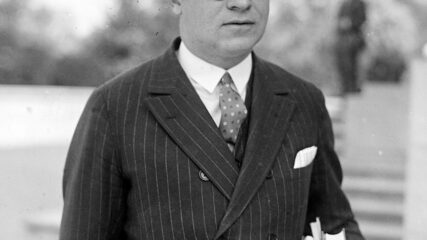
Celler was New York’s longest-serving congressman, holding a House seat from 1923 to 1973. He read Herzl during World War I and became a Zionist. He attempted to assist fellow Jews by opposing the Immigration…

Jacobson and Harry Truman became close friends during World War I and partnered after the war in a failed haberdashery. In March 1948, Jacobson visited Truman, now the president, at the White House and persuaded…
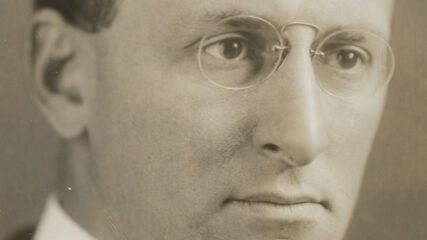
Morgenthau was the U.S. secretary of the Treasury under Franklin Roosevelt and Harry Truman from 1934 to 1945. He drove the creation of the War Refugee Board in 1944 to help Jews escape the Nazis…
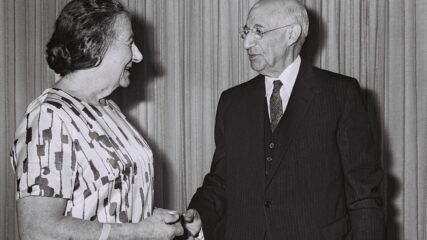
Serving as the American Jewish Committee president, Blaustein in 1950 coordinated with Israeli Prime Minister David Ben-Gurion to reach the Blaustein-Ben-Gurion Agreement on Israel-Diaspora relations. The agreement aimed to secure financial and political support for…

Eshkol, Israel’s third prime minister, was a farm worker after arriving from Ukraine in 1914. He organized labor and became a Mapai and Jewish Agency leader. He raised money for arms and for immigrant absorption….
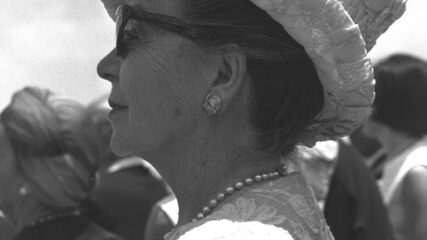
A two-time president of Hadassah, Halprin lived in Jerusalem in the late 1930s to serve as the Hadassah Medical Organization’s liaison during the construction of Hadassah Hospital at Mount Scopus. She spoke against violence during…

Born in Ukraine and raised in Wisconsin, Meir rose in Labor Zionism with the Histadrut and engaged in diplomacy for the Jewish Agency and Israel, including trying to keep Transjordan out of the 1948 war…

A Ukraine-born journalist, politician and diplomat, Elath arrived in the Land of Israel in 1924, joined the Jewish Agency in 1934, and became Israel’s first ambassador to the United States and, when the diplomatic post…

Kenen in 1951 founded the American Zionist Committee for Public Affairs, the predecessor of the American Israel Public Affairs Committee (AIPAC). Kenen’s organization provided a united pro-Israel voice in Washington and helped win financial aid…
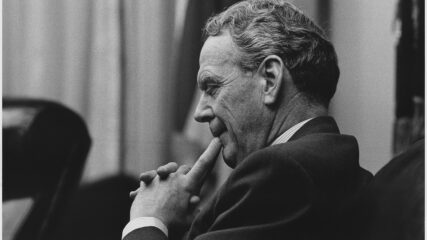
As a special presidential counsel, Clifford opposed the pro-Arab State Department and urged President Harry Truman to maintain support for the U.N. partition of Palestine and to lift the arms embargo on Jewish forces heading…

The 36th U.S. president, Johnson increased U.S. economic and military support for Israel. Unlike Dwight Eisenhower in 1956, Johnson did not demand Israel’s immediate withdrawal from captured territory after the 1967 war. He outlined five…
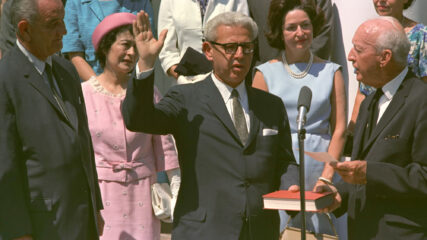
Goldberg resigned as a U.S. Supreme Court justice in 1965 to serve as the U.S. ambassador to the United Nations. He drafted the text of U.N. Security Council Resolution 242, the basis of all “land…
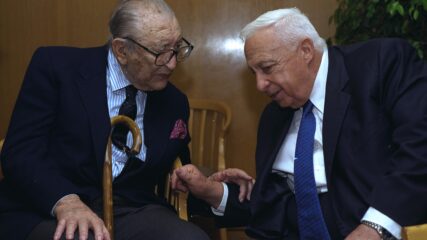
Pittsburgh native Fisher, who made his fortune in Midwestern gas stations and real estate, advised Republican presidents from Richard Nixon to George W. Bush on the Middle East and Jewish issues. He helped persuade Nixon…

Although considered pro-Israel, Reagan, the 40th U.S. president, acted to balance U.S. policy toward Israel and Arab states. Under Reagan, the United States halted F-16 sales to Israel after its raid on Iraq’s nuclear reactor…
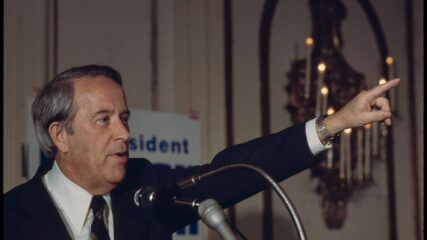
As a congressman from 1941 to 1953 and a senator from 1953 until 1983 for Washington state, Jackson was one of the leading pro-Zionist and pro-Israel voices in Congress. He wrote legislative amendments in 1970…

A U.S. businessman who wasn’t Jewish, Winters bought three surplus U.S. B-17 bombers on the pretense that they were for his Caribbean transport service. Instead, he delivered them to the nascent Israeli Air Force in…
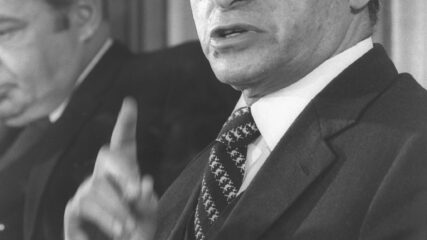
Born in Belarus, Begin joined the Revisionist Betar movement and escaped Nazis and Soviets to reach Palestine. He led the Irgun, then spent three decades in the political opposition, including arguing against German reparations. In…
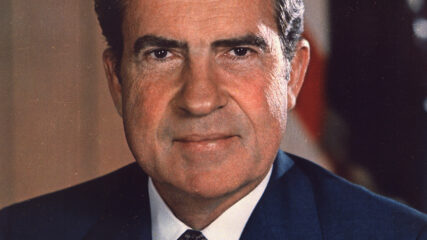
Though he expressed antisemitic views in private, Nixon as the 37th U.S. president authorized the airlift that replenished Israel’s arms during the October 1973 war, providing the means for Israel to end the war with…
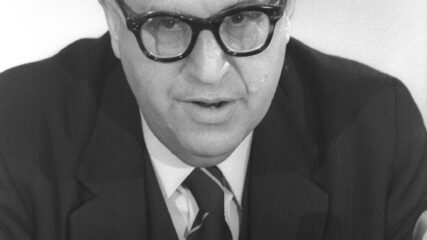
A native of Cape Town, South Africa, who was raised in England and made aliyah in 1944, Eban was a diplomat, politician and writer. With the Jewish Agency’s U.N. delegation, he was heavily involved in…
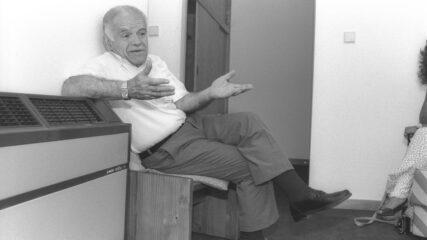
Belarus-born Shamir was the seventh prime minister, serving two terms between 1983 and 1992. He was a Lehi leader during the British Mandate. As a Likud prime minister, he approved Operation Solomon to airlift in…
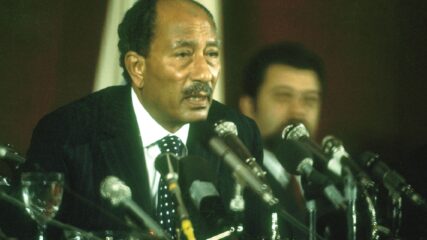
Sadat was elevated from Egypt’s vice president to president after Gamal Abdel Nasser died in 1970. With Syria, he launched the October 1973 war against Israel. He flew to Israel four years later in pursuit…
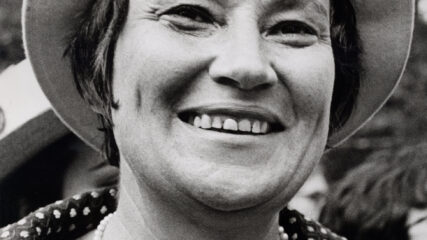
Abzug was the first Jewish woman elected to Congress, representing New York as a Democrat in the House from 1971 to 1977. The daughter of immigrants from Russia, she joined Zionist youth group Hashomer Hatzir…
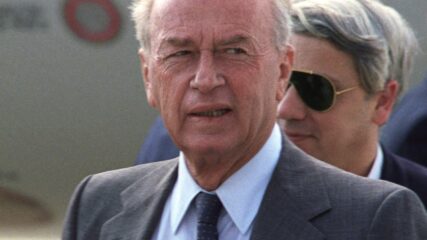
Rabin was a two-time prime minister whose assassination shattered hopes for peace under the Oslo Accords, for which he shared the 1994 Nobel Peace Prize with Shimon Peres and Yasser Arafat. He also signed a…
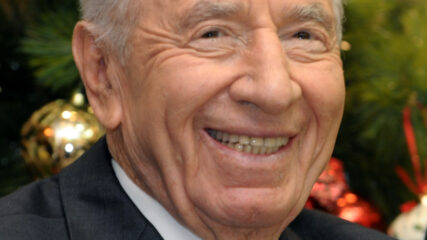
Peres is the only Israeli to serve as prime minister and president. Born in Belarus, he arrived in Palestine in 1934. He helped establish and arm the initial IDF in the 1940s and launched a…
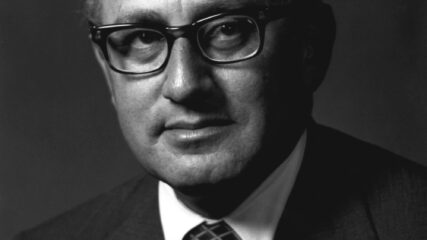
Kissinger was the national security adviser and secretary of state to Presidents Richard Nixon and Gerald Ford. He heavily influenced U.S. policy in the Middle East and made “shuttle diplomacy” famous after the October 1973…
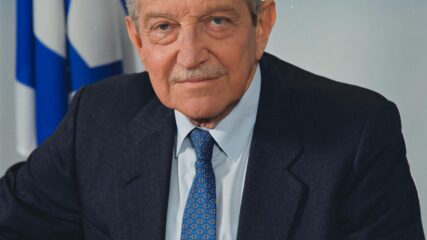
Weizman, the nephew of Chaim Weizmann, was Israel’s seventh president from 1993 to 2000. He was a founder of the Israeli Air Force and became its commander in 1958. As defense minister in the first…
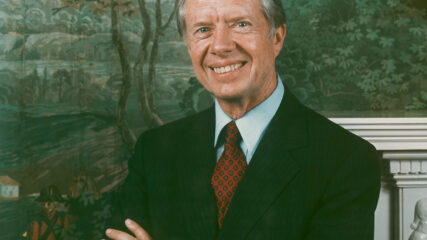
The 39th U.S. president, Carter mediated the 1978 Camp David Accords and 1979 peace treaty between Israeli Prime Minister Menachem Begin and Egyptian President Anwar Sadat. The treaty was the first between Israel and an…

American billionaire Crown is a philanthropist who supports many Israeli causes, including Tel Aviv University and the Weizmann Institute of Science. He is dedicated to sharing Israel’s accomplishments with the world. He is a director…

Kirkpatrick was the U.S. ambassador to the United Nations under President Ronald Reagan. She built a close relationship with Israeli Ambassador Yehuda Blum and was as staunch in her support of Israel as she was…
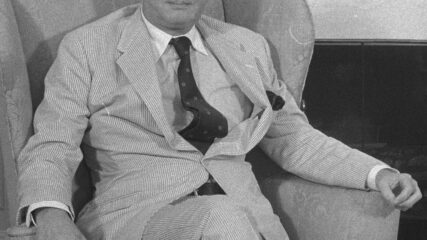
Moynihan was the U.S. ambassador to the United Nations in 1975 when the U.N. General Assembly passed Resolution 3379, equating Zionism with racism. He delivered a passionate speech lambasting the resolution and its supporters and…
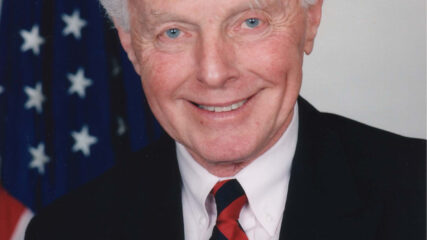
A native of Hungary, Lantos was the only Holocaust survivor to serve in Congress, representing California as a Democrat in the House from 1981 to 2008. Steven Spielberg’s documentary “The Last Days” featured Lantos’ life…
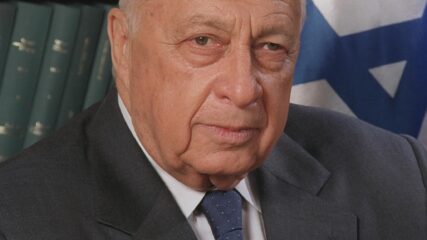
Sharon led IDF commandos in the 1950s, was a field commander in 1967 and drove the Sinai counteroffensive in 1973. As defense minister, he launched the First Lebanon War, which resulted in an 18-year occupation,…
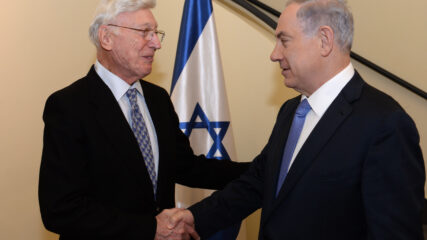
Home Depot co-founder Marcus has devoted much of his philanthropy to Israel and to organizations supporting Israel. Examples within Israel include the Israel Democracy Institute and Magen David Adom’s underground blood storage facility in Ramle….

Weinberg is the founder and chairman emerita of the Washington Institute for Near East Policy, fulfilling a vision she shared with her late husband, Larry, a former AIPAC president. In 1973 she became the first…
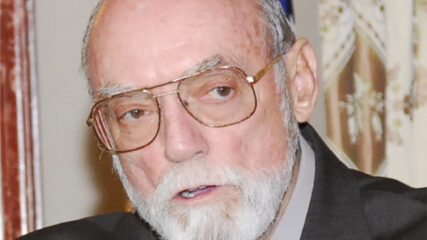
Lewis served as the U.S. ambassador to Israel from 1977 to 1985, second in tenure to Walworth Barbour. He played an important part in brokering Israeli-Egyptian peace and provided the on-site U.S. response to the…

Recruited by Si Kenen, Lauter worked with the American Israel Public Affairs Committee in San Francisco for more than 50 years, from chief volunteer recruiter to regional director to a consultant training staff across the…

Bronfman, part of the Canadian Jewish family who built the Seagram beverage company, co-founded Birthright Israel, which brings young Jewish adults from around the world to Israel for a 10-day educational visit. His foundation, Charles…
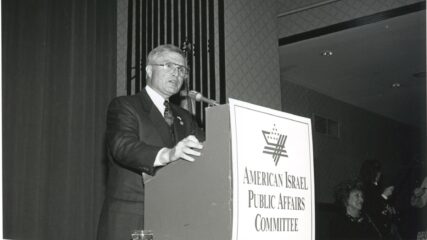
A longtime resident of Alabama, Mitchell was the president of the American Israel Public Affairs Committee from 1990 to 1992 and AIPAC’s chairman from 1993 to 1996. As an activist and philanthropist for Jewish and…

Casino magnate Adelson was one of the biggest donors to Israeli and Jewish causes. He launched and owned Israel Hayom, Israel’s most widely distributed newspaper, and was a stalwart backer of Benjamin Netanyahu. He funded…

As Jordan’s king, Hussein tried to annex the West Bank and eastern Jerusalem while ruling them from 1948 to 1967. He lost everything west of the Jordan River after he attacked Israel to support Egypt…

Lithuania-born Barak was a 28-year Supreme Court justice who served as the president of the court from 1995 to 2006. He lifted restrictions on individual petitions to the court and strengthened the judiciary’s authority to…
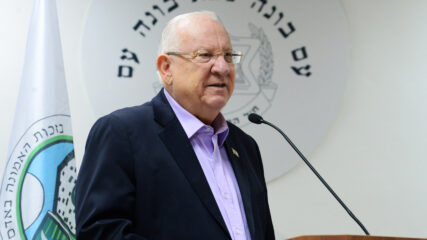
The 10th president of Israel from 2014 to 2021, Rivlin was a Likud politician who served as the speaker of the Knesset from 2003 to 2006 and 2009 to 2013. As president, he pushed for…
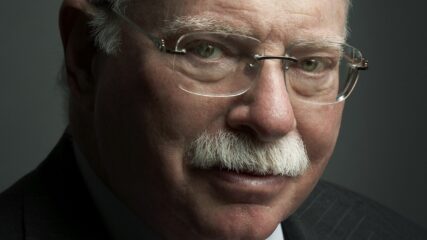
Billionaire New York philanthropist Steinhardt’s extensive donations to Jewish causes include co-founding Birthright Israel with Charles Bronfman and launching a network of Hebrew-language charter schools. He chaired the board of Tel Aviv University and endowed…
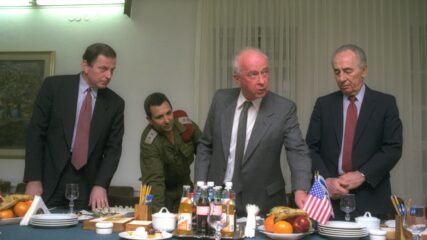
Diplomat and historian Rabinovich is a former ambassador to the United States and former president of Tel Aviv University. A former IDF lieutenant colonel, he was Israel’s chief negotiator with Syria in the 1990s. His…

As Israel’s 10th prime minister and last from the Labor Party from 1999 to 2001, Barak ended the occupation of southern Lebanon, participated in the 2000 Camp David talks, was rebuffed by Yasser Arafat in…
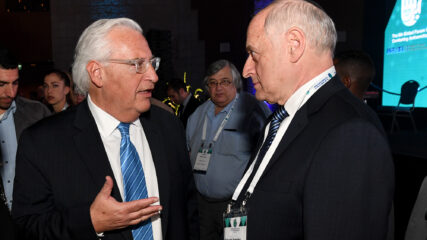
Hoenlein is transitioning out of the Conference of Presidents of Major American Jewish Organizations, which coordinates support for Israel, after serving as the executive vice chairman since 1986. He handed the CEO position to William…

Weiss is an author and activist who led the movement to free Soviet Jewry; ultimately, more than 1 million immigrants moved as the Soviet Union crumbled. He served as spy Jonathan Pollard’s personal rabbi and…
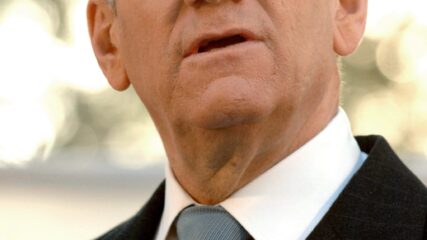
Olmert, a 10-year Jerusalem mayor, served as Israel’s 12th prime minister from 2006 to 2009, taking office for Kadima after Ariel Sharon’s stroke and resigning amid charges of bribery and obstruction of justice, for which…

The 45th and 47th U.S. president, Trump took steps in both terms to strengthen ties with Israel. He withdrew from the 2015 Iran nuclear deal. He fulfilled a deferred 1995 law and moved the U.S….
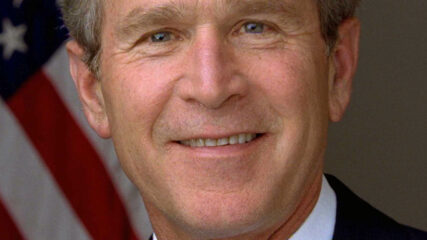
The 43rd U.S. president, Bush offered a vision for a two-state Israeli-Palestinian solution in June 2002 that inspired the “Roadmap for Peace” presented by the Quartet (the United States, European Union, United Nations and Russia)…
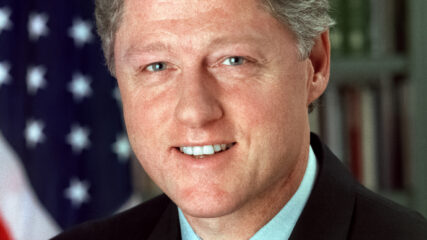
As president, Clinton hosted the signing of the 1993 Oslo Accords, helped Jordan and Israel achieve a peace treaty in 1994, and mediated the 1995 Oslo II agreement that recognized the Palestinian Authority. He brokered…
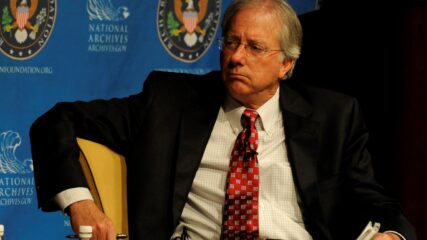
Working in the Defense Department, with the National Security Council or in the State Department under every president from Jimmy Carter to Barack Obama, Ross helped shape U.S. Middle East policy. He helped get Israel…

Netanyahu has served as the Likud leader for all but six years since 1993. He is Israel’s longest-serving prime minister, holding the office from 1996 to 1999, 2009 to June 2021, and December 2022 to…

Harris served as the chief executive of the American Jewish Committee from 1990 until the end of September 2022. He made advocacy for a Jewish, democratic, internationally accepted Israel a fundamental part of AJC’s efforts….

Almog, a retired IDF major general, was unanimously nominated in June 2022 to serve a four-year term as the chairman of the Jewish Agency for Israel, succeeding Isaac Herzog. A paratrooper, Almog was the first…
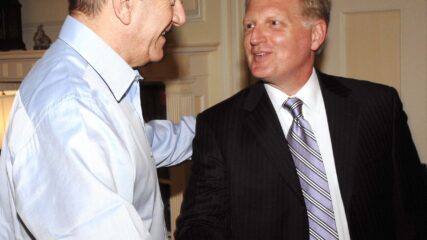
Kohr has served as the top executive of the American Israel Public Affairs Committee since 1996. Under Kohr, AIPAC has built support beyond the Jewish community. Its lobbying for a strong U.S.-Israel relationship has drawn…
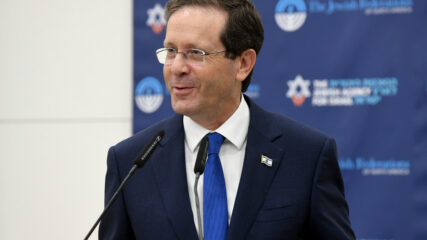
Herzog has served as the 11th president of Israel since July 2021. His father, Chaim Herzog, also served as president, and grandfather Yitzhak HaLevi Herzog was the chief rabbi of Ireland. A Tel Aviv native,…

The 44th U.S. president, Obama was less active in seeking Middle East peace than his three immediate predecessors and tried to strengthen relations with Israel’s neighbors. He split with Israeli Prime Minister Benjamin Netanyahu over…

Deutch, a Democratic congressman from Florida since 2010, succeeded David Harris as the American Jewish Committee CEO on Oct. 1, 2022. In the U.S. House he introduced and supported legislation and resolutions to further U.S.-Israel…